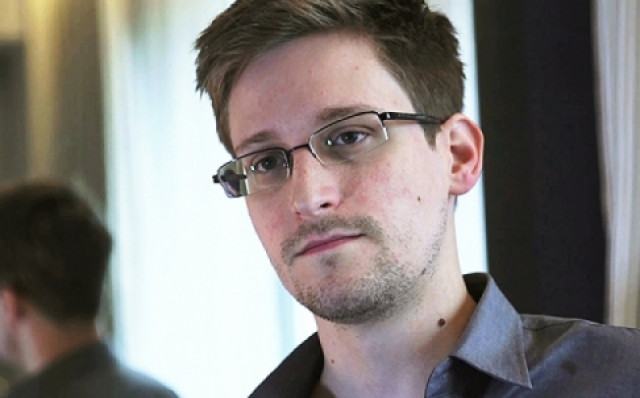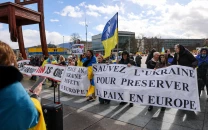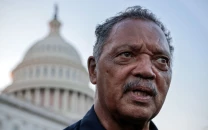Snowden affair is chance for truce in cyberwar: UN
Touré urged governments to discuss the problem frankly and to "find some solutions that will not embarrass anybody".

The accusations by Snowden that NSA spied on Internet traffic, has prompted outrage from the target countries but some diplomats say the such activities were always an open secret. PHOTO: REUTERS
"It gives us an opportunity, and I keep saying let's build bridges," said Hamadoun Touré, head of the International Telecommunication Union (ITU), which is working with Interpol and the UN Office on Drugs and Crime to work out how to police cyberspace.
The accusations by Snowden, a former US spy agency contractor, that the National Security Agency (NSA) spied on Internet traffic, has prompted outrage from the target countries but some diplomats say the such activities were always an open secret.
"You're saying that we know that all countries are doing it. And we do," Touré said, in answer to a Reuters question at a news conference.
"I was talking to one ambassador a week ago who was saying: 'I'm surprised by the Europeans' surprise, because we all do this.' That's what he said. He was very frank."
Touré wants a treaty in which countries would promise to ensure Internet access for their citizens, protect them from attacks, work with other countries to stop criminal activities, and not attack another country first.
Touré said he had been calling for a cyber treaty for years, but countries always said they did not have a mandate to discuss it and accused others of being behind cyber attacks. "Now, with current international events, it's no longer the case," he said.
"People used to accuse only one. Now we know it's not necessarily only one country or two. People used to accuse China and Russia, easy targets. But we know that it's something that involves everyone. I think we have to be realistic on that."
Involvement in cyber attacks is routinely denied by all governments, but Touré said that "indeed, there's a cyber war going on, unfortunately".
"I wish there was not, but there is," he said, adding that governments should "refrain from such actions". He said he included cyber espionage as a form of attack. Touré urged governments to discuss the problem frankly and to "find some solutions that will not embarrass anybody".
"And I am not trying to embarrass anyone, because I understand the motives. But the means may have gone too far," he said.
"We should not humiliate one another. We are trying to portray one another as the devil and it doesn't work. We can all save face and move it forward."
Some cyber experts say keeping the peace is much more difficult than in conventional warfare, partly because anybody can launch an attack and it can be impossible to determine who was behind a particular attack.
Touré said the ITU wanted countries to sign up to a common procedure that would help trace attacks.
If countries agreed to an automatic system to notify each other of IP addresses suspected of being the source of cyber attacks, they could move much more quickly and have a chance of catching criminals, who may need only 10 minutes to commit a cybercrime before they go offline, he said.



















COMMENTS
Comments are moderated and generally will be posted if they are on-topic and not abusive.
For more information, please see our Comments FAQ